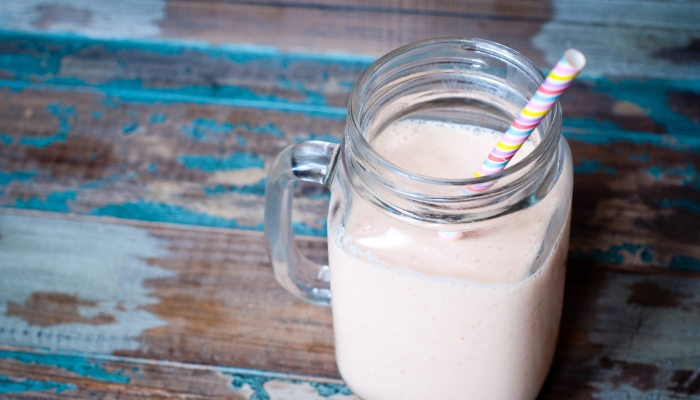|
by Ward W. Bond, PhD
When I was a teenager, my parents got into natural health and of course I thought it was be just faze and it would move on. Then came kefir. This was a much tastier beverage than milk or any milkshake and it was good for me, what’s not to like about that? We had all the flavors, plain, strawberry, raspberry, pineapple and even boysenberry, which was my favorite. The cartons back in the 1970’s were not very big and if you didn’t watch it, you would drink all of it and leave nothing to the others. We lived in a small town of barely 4,000 people and had to drive an hour to go to the store to get the kefir, we had to stock up, but we couldn’t be a glutton about it either. Those were the days. The good news is more and more people are learning about the benefits of kefir. I use both the cow’s milk kefir and the goat’s milk kefir to keep variety in the mix. I love seeing more information about gut health in the news and mostly in social media where news travels faster than Superman. Back in 2000, I had the honor to travel with the father of probiotics, the late Dr. Khem Shahani and learned about the importance of gut health, but more importantly how to get the good bacteria back into the gut so our immune system can be strong and vibrant. Dr. Shahani was responsible for figuring out how to get our Lactobacillus and Bifidobacterium back into our gut. When one studies such a subject, you have to look at the very beginnings of gut health from a baby passing through the birth canal, to breastfeeding and to cultures that focused on fermented foods such as Bulgarian yogurt and Kimchi. Before the days of probiotic supplementation, we had foods that provided us with bacteria that improved our gut. Let’s focus on kefir, hey it tastes better than sauerkraut right? Kefir comes from the Turkish word, ‘keyif’ meaning “good feeling”. You want to feel good don’t you? Of course you do, so put down that overloaded Starbucks drink some people call coffee and listen up! Kefir offers complete proteins and is easily digested. It’s known that those who suffer from lactose intolerance can digest kefir without stomach upset or bloating. Kefir is NOT liquefied yogurt as some believe. Kefir can contain up to 30 strains of good bacteria making it much more effective as a probiotic food than any yogurt and you don’t need a spoon. Kefir includes the probiotic Lactobacillus kefiri, which is unique to kefir. Studies show that this probiotic can inhibit the growth of various harmful bacteria, including Salmonella, Helicobacter Pylori and E. coli (causes food poisoning). When you improve your gut health, you improve every part of your body from your bones, digestion and immune system. Kefir is highly effective for many forms of diarrhea which as mentioned above can be caused by Salmonella and E. coli. There is much research that probiotics and probiotic foods can help with all sorts of digestive problems even those who suffer with Irritable Bowel Syndrome. Did you know kefir may help fight against cancer? If your gut is healthy, your immune system is healthy and you need a healthy immune system to prevent cancer and even fight it. The probiotics in fermented dairy products like kefir are believed to inhibit tumor growth by reducing formation of carcinogenic compounds, as well as by stimulating the immune system. One test tube study found that kefir reduced the number of human breast cancer cells by 56%, compared with only 14% for yogurt. And let’s not forget about allergies. Children born by C-section and never breast-fed go through life without the good bacteria they need to be healthy. These children have higher instances of asthma, ear infections and allergies than those children who were born naturally and breast-fed. In animal studies, kefir has been shown to suppress inflammatory responses related to allergy and asthma. In human studies, non-pathogenic E. coli was administered to infants to stimulate their immune systems. At 10 years old and 20 years old these children suffered from significantly fewer allergic diseases. Prior to delivery, expecting mothers received probiotics or a placebo. Following delivery, the children who received probiotics continued dosage for 6 months. After 4 years, only 26% of the children on probiotics developed eczema while 46% of those without probiotics developed the condition. Time to drink up America! Kefir, it does the body good in more ways than an old glass of milk. You get vitamins, minerals, protein and beneficial gut bacteria that will feed every cell in your body. Forget the donut, forget the coffee, start your day with kefir, hey it was once called the food of the gods. So God bless kefir!
0 Comments
Your comment will be posted after it is approved.
Leave a Reply. |
Archives
May 2022
|

 RSS Feed
RSS Feed